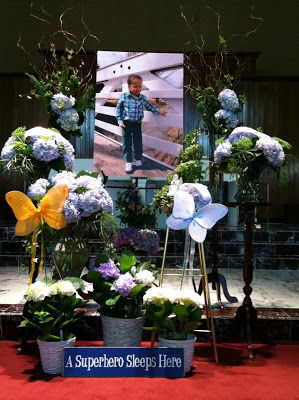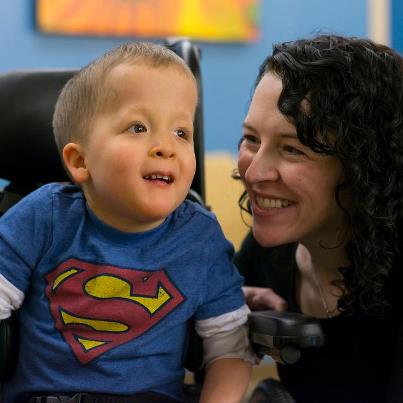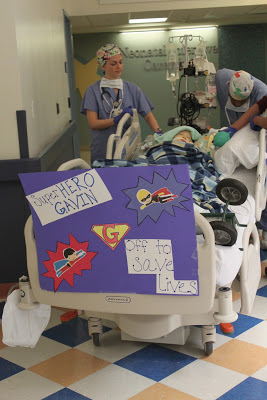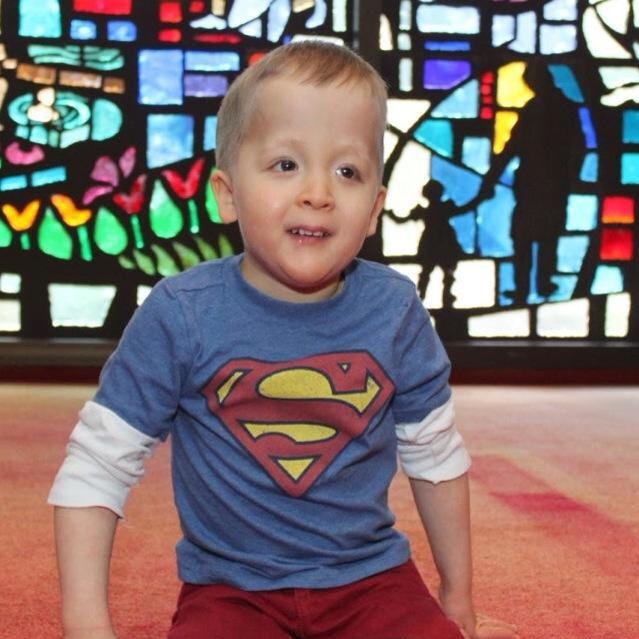As a writer, I routinely place characters into situations where they are caught up in events larger than they are. It is rare in anyone’s real life to feel something similar—but I am feeling that way right now.
My friend Kate Leong’s 5-year-old son Gavin died last week. He was pronounced dead on Kate’s 43rd birthday. But instead of screaming the heavens down with the unfairness of it all, Kate posted on her blog that for her birthday she would like anyone touched by Gavin’s life to do an act of kindness in his honor.
Boy, did people around the world respond.
Kate’s blog, Chasing Rainbows, has chronicled Gavin’s remarkable journey from babyhood. She has followers all around the world. Her request did not fall on deaf ears. Whether it was people like me who felt like Gavin was a part of our own family, or people who had found Kate’s blog for the first time and were moved by her generosity of spirit, acts of kindness rippled out from their epicenter—one small boy who never spoke a word.
I watched as the word spread through social media. I saw it hit other highly-popular blogs. I saw it make headlines on Huffington Post. I saw people sending Gavin’s story to the Ellen de Generes show. I read as people donated to charities, collected toys for children’s hospitals, made soup for local families in need, donated to hippotherapy or asked their local special needs teachers what they could do to help. The company who makes the popular communication software Speak For Yourself gave away 30 free apps in Gavin’s name. A jeweler named their new keepsake pendant “Kate’s Heart” in honor of the Leong family. A person kindly donated her talent to creating the program for Gavin’s funeral service, and so many people contributed money to help defray the cost of paying a printer that she ended up with well over $5,000 (anything not going to pay for the printing will be donated to the “in lieu of flowers” charities the Leong’s suggested). Everywhere I looked, people reached out to one another, to strangers—to help.
This tremendous wave of generosity, a tsunami of kindness, is something far more than any of us can comprehend at this moment. Certainly, the peak of the movement will fade as Gavin is laid to rest and people return to their normal lives, but this courageous little boy has reached out and changed us all permanently.
Some people will become organ donors who otherwise might not have. Some people who have begun helping organizations in his name will continue to do so out of their own newfound passion. Connections have been forged between people who might not otherwise have met. Any one of these things—EVERY one of these things—has the potential to change someone’s life.
We do not always know the results of the good that we do. Something that seems like nothing to us can have a deep impact on someone else. Even a small act of kindness on our part—an old iPad given to a school, a $5 donation to a cause—can be the thing that profoundly changes someone’s life. Any act of kindness might be the act that opens another person’s eyes, or becomes the helping hand a person needs to turn their life in a positive direction, or gives a child the freedom to reach their full potential. Any act of good we do can be the key to changing a life, and that life we change could be the key to changing the world.
Even after the initial tsunami of kindness fades, the effects we set in motion will continue. They will cascade and pass on from person to person. We may never fully grasp the impact Kate’s request and our response has upon this world.
But I know we made a difference and will continue to do so.
So to anyone out there who doubts that one person can change the world, I hold up the example of Gavin Leong.
One person CAN change the world—even if he’s only 5 1/2 years old.





